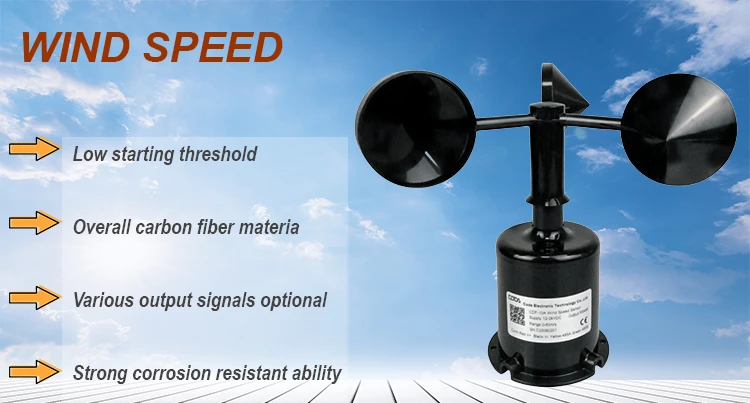Wind Speed Measuring Instruments: Types and Applications

html
Wind Speed Measuring Instruments: Types and Applications
Wind speed measurement is crucial in various fields, from meteorology to aviation and renewable energy. Accurate wind data helps in weather forecasting, flight safety, and optimizing wind turbine performance. Several instruments are designed to measure wind speed, each with unique features and applications.
Common Types of Wind Speed Measuring Instruments
1. Anemometers
Anemometers are the most widely used instruments for measuring wind speed. They come in several types:
- Cup Anemometers: Feature rotating cups that spin with the wind, with speed calculated based on rotation rate.
- Vane Anemometers: Combine a propeller with a tail vane to measure both speed and direction.
- Hot-Wire Anemometers: Use electrically heated wires where cooling by wind correlates to speed.
- Sonic Anemometers: Measure wind speed by analyzing ultrasonic sound wave transit times.
2. Wind Vanes
While primarily used for measuring wind direction, wind vanes often work in conjunction with anemometers to provide comprehensive wind data.
3. Pitot Tubes
Commonly used in aviation, Pitot tubes measure airspeed by comparing static and dynamic air pressure.
4. Lidar (Light Detection and Ranging)
Advanced remote sensing technology that uses laser pulses to measure wind speed and direction at various altitudes.
Applications of Wind Speed Instruments
Meteorology and Weather Forecasting
Accurate wind measurements are essential for weather prediction models and severe weather warnings.
Aviation
Wind speed data is critical for flight planning, takeoff/landing procedures, and in-flight navigation.
Wind Energy
Wind farms rely on precise wind measurements for site selection, turbine placement, and performance optimization.
Construction and Engineering
Wind load calculations for buildings and bridges require accurate wind speed data.
Maritime Operations
Ships and offshore installations use wind measurements for navigation and safety purposes.
Choosing the Right Instrument
Selecting the appropriate wind speed measuring device depends on factors like:
- Required accuracy level
- Measurement range
- Environmental conditions
- Data recording needs
- Budget constraints
Modern wind measurement systems often combine multiple technologies to provide comprehensive data for specific applications. As technology advances, wind measurement instruments continue to become more precise, durable, and versatile.
Keyword: measure wind speed instrument